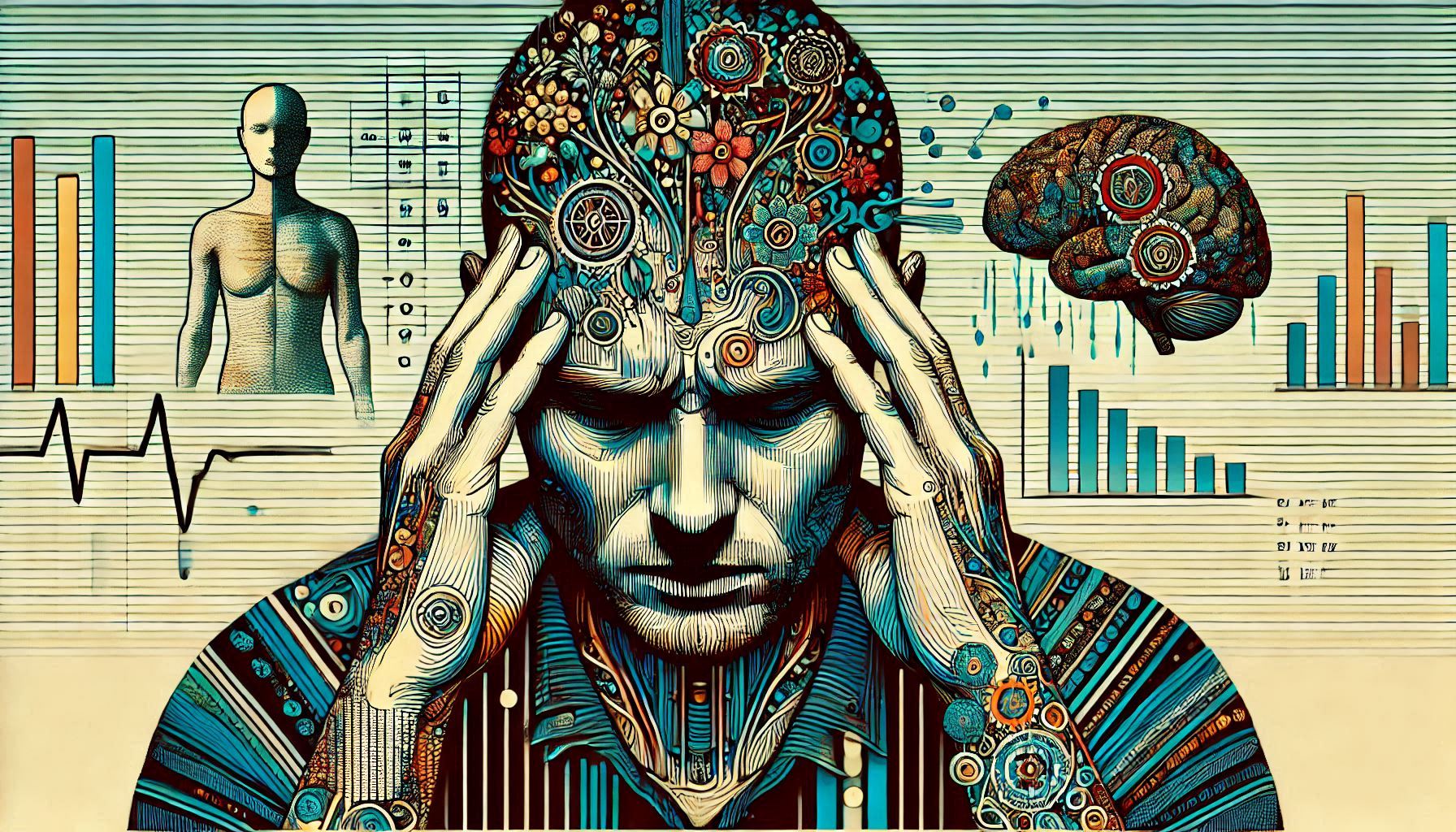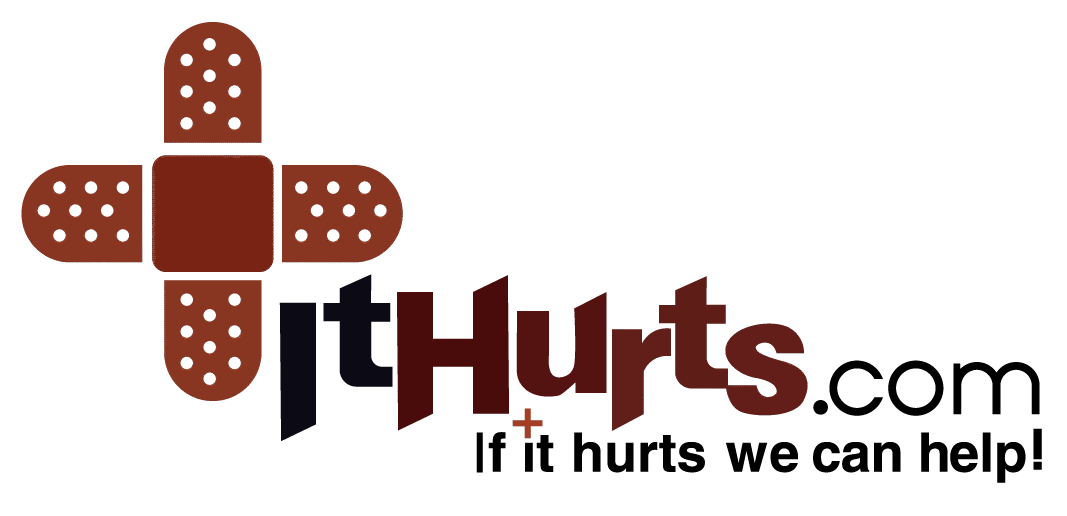Shopping Cart
CloseNo products in the cart.
Filter
closeBeat the Ache: A Comprehensive Guide to Understanding and Recovering from Tension Headaches
Author: ItHurts.com
A Comprehensive Talk on Understanding and Recovering from Tension Headaches

Understanding the Basics:
Tension headaches are the most common type of headache experienced by people worldwide. Characterized by a dull, aching sensation around the head, tension headaches can disrupt daily life, affecting productivity, mood, and overall well-being. Whether you’re battling an occasional headache or chronic tension, understanding the causes, symptoms, and effective recovery strategies is key to managing this common ailment.
What Are Tension Headaches?
Tension headaches are often described as a constant, non-throbbing pain that feels like a tight band around the head. Unlike migraines, which may come with visual disturbances or nausea, tension headaches are typically milder and do not disrupt normal daily activities as severely. They can last from 30 minutes to several hours and, in chronic cases, may persist for days.
Tension headaches fall into two primary categories:
- Episodic Tension Headaches: Occur less than 15 days a month and are often triggered by stress or fatigue.
- Chronic Tension Headaches: Occur more than 15 days a month, potentially lasting for months. Chronic cases often stem from underlying issues like poor posture, long-term stress, or untreated mental health concerns.
What Causes Tension Headaches?
Understanding the root causes of tension headaches is essential for effective management. While they are not always tied to a single factor, common triggers include:
- Stress:
Stress is a major culprit in tension headaches. When stressed, your body releases hormones like cortisol, which can tighten muscles around the head and neck, leading to pain.
2. Muscle Strain
Prolonged poor posture, especially from desk jobs, staring at screens, or sleeping in awkward positions, can strain neck and shoulder muscles, triggering tension headaches.
3. Dehydration
Insufficient water intake can lead to dehydration, which is a common cause of headaches, including tension types.
4. Lack of Sleep
Sleep deprivation disrupts the body’s natural recovery processes, making you more susceptible to tension headaches.
5. Emotional and Mental Health Issues
Anxiety and depression often coexist with chronic tension headaches. Persistent worry or sadness can create a cycle of muscle tension and discomfort.
6. Eye Strain
Staring at digital screens for extended periods can strain eye muscles, potentially contributing to headache development.
Symptoms of Tension Headaches
Tension headaches are often easy to identify. Here’s what to look out for:
– A dull, constant ache on both sides of the head.
– Sensation of pressure or tightness across the forehead or around the back of the head.
– Tenderness in the scalp, neck, and shoulder muscles.
– No nausea or visual disturbances (which are more common in migraines).
Effective Strategies for Recovering from Tension Headaches
- Nutrition: Healing from Within
A well-balanced diet can play a significant role in managing joint diseases.
- Anti-Inflammatory Foods:
– Omega-3-rich fish (salmon, mackerel)
– Fruits and vegetables high in antioxidants (berries, spinach)
– Nuts and seeds (walnuts, flaxseeds)
- Foods to Avoid:
– Processed foods high in sugar and trans fats
– Excessive alcohol and red meats (especially for gout patients)
- Supplements:
– Glucosamine and chondroitin may support cartilage health.
– Vitamin D and calcium for bone strength.
2. Stay Active (But Gently!)
Low-impact exercises help maintain joint flexibility without adding stress.
– Recommended activities: swimming, yoga, and tai chi.
– Avoid high-impact sports like running or jumping, which may worsen joint damage.
3. Manage Stress
Chronic stress can exacerbate inflammation, especially in autoimmune diseases. Techniques such as mindfulness meditation, deep breathing, and regular sleep routines are helpful
Long-Term Strategies for Preventing Tension Headaches
Preventing tension headaches is often a matter of maintaining a balanced lifestyle. Here are some sustainable practices:
- Stress Management
– Practice regular mindfulness or meditation.
– Break large tasks into manageable steps to avoid feeling overwhelmed.
– Make time for hobbies and activities that bring joy.
- Balanced Diet
Eat nutrient-rich foods that support overall health. Avoid skipping meals, as this can lead to headaches.
- Limit Caffeine and Alcohol
While caffeine can help relieve headaches for some, overconsumption may contribute to rebound headaches. Alcohol can also act as a trigger for some individuals.
- Regular Health Checkups
Ensure any underlying conditions, such as vision problems or mental health concerns, are addressed.
When to See a Doctor
While tension headaches are often manageable with self-care, some situations warrant medical attention:
– Headaches that persist or worsen despite treatment.
– Sudden, severe headaches.
– Headaches accompanied by other symptoms like vision changes, difficulty speaking, or numbness.
A healthcare professional can rule out more serious conditions and recommend targeted treatments.

Conclusion
Tension headaches may be common, but they don’t have to dominate your life. By understanding the triggers and incorporating simple recovery strategies into your routine, you can take control of your health and minimize the impact of these headaches. From stress management and posture correction to hydration and professional care, there are numerous ways to relieve and prevent tension headaches effectively.
Start small—apply one or two strategies today and build a lifestyle that prioritizes your well-being. You deserve a life free from the constant ache of tension headaches.
Let this be the day you take charge. With the right approach, relief is within reach!
ItHurts.com is your ally in your endeavor to live pain-free. We offer guidance, resources, and community support to address chronic pain, emotional stress, and physical discomfort. Discover insightful articles, product reviews, recommendations and shared experiences to empower your journey to better health. Remember, if it hurts, we can help!
Related Products
No posts found!
Related Blogs
No posts found!
